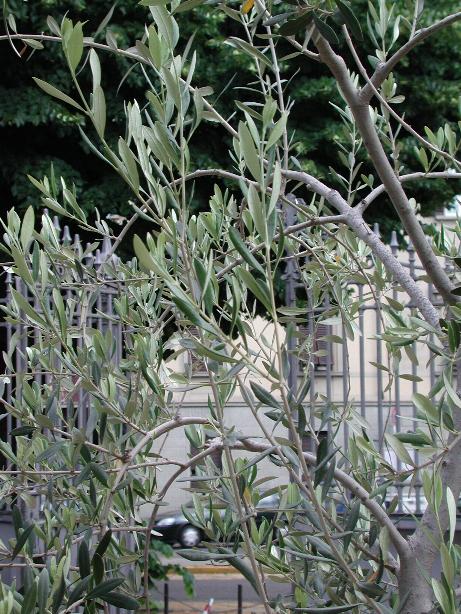
THE SOUL'S GREEN DELL
THE MIND & ILLNESSES OF THE MIND
HAZEL ODDY

 awas
glad when people said, "Let us afford time to offer praises
to our Sacred Lord."
awas
glad when people said, "Let us afford time to offer praises
to our Sacred Lord."
Lord of flow'rs (whom He kindly
rains on); grow we well in His fertile soil.
Down each sunlit way, and through ev'ry shadowed
valley,
May we e'er bloom well in our
Son, Immanuel.
There is no exclusion from our Master's walls.
Travel to His garden when the
great Lord calls.
Seedlings come up in lea and wildwood:
Wondrous gifts, ev'ry one from
heav'n.
And by grace we 'spire toward the vitalizing
Son-light.
Then in soul's green dell,
flower for Immanuel.
Carolyn K. Davis

This poem may be sung to the tune, "Angevin", as
arranged by Martin Shaw at No. 154 in The Oxford Book of
Carols.
Notes
I wrote this poem for Hazel Oddy at a time when she
was recuperating from a lengthy illness.
The world's pleasures and successes may satisfy us and keep us
in the race of life most of our lives.
But when serious illness or other hardship interrupts the flow
of our lives, all may become meaningless. Worldly gains
may be out of reach.
Or even when they remain within reach, they may no longer
satisfy.
What a wonderful thing, at such a time, to be able to turn to
God and take up our spiritual walk with Him as our holy
nurturer.
And how fortunate we are if we discover the right "gardens",
where He wants us to bloom and become the best selves He would
have us be.
C.K.D.
JUAN LUIS VIVES
EL GRAN
VALENCIANO
PROLOGUE
Born 6 March 1492, Valencia, Aragon
Died 6 May 1540, Bruges

 am trying to remember
when I first became fascinated by the life and work of Juan
Luis Vives. It was somewhere between one
hospitalization for a deep clinical depression in Montréal,
Canada and another. In this period, I had become
involved with Perspective Communautaire en Santé Mentale, a
Québec-based mental health agency. We, the clients, had
formed a newsletter team and had begun to write articles for
it. We all knew too well what it was like to carry the token
of shame and burden of dishonour because of our afflictions.
It was our fervent hope it would serve as a forum for
expression of those afflicted with certain illnesses of the
mind. We hoped to arouse more public awareness of the
mentally ill, to eliminate the stigma attached to those
suffering from such illnesses within the community.
The newsletter soon became the quarterly magazine, IMAGINE.
Our voices were being heard in hospitals and doctor’s
offices within the West Island community of Montréal. It was
a start.
am trying to remember
when I first became fascinated by the life and work of Juan
Luis Vives. It was somewhere between one
hospitalization for a deep clinical depression in Montréal,
Canada and another. In this period, I had become
involved with Perspective Communautaire en Santé Mentale, a
Québec-based mental health agency. We, the clients, had
formed a newsletter team and had begun to write articles for
it. We all knew too well what it was like to carry the token
of shame and burden of dishonour because of our afflictions.
It was our fervent hope it would serve as a forum for
expression of those afflicted with certain illnesses of the
mind. We hoped to arouse more public awareness of the
mentally ill, to eliminate the stigma attached to those
suffering from such illnesses within the community.
The newsletter soon became the quarterly magazine, IMAGINE.
Our voices were being heard in hospitals and doctor’s
offices within the West Island community of Montréal. It was
a start.
I was at the beginning of my bi-centennial year and reading about Juan Luis Vives changed my outlook on life. It had been hard work, in more ways than one, because of the lessons I needed to unlearn. I had once thought medical doctors infallible; my chilling experiences had taught me otherwise. In fact, I became a sceptic of psychiatry and psychiatrists, and, more particularly, the amount of medication we all were prescribed and consumed. Many were ravaged by side effects - hands that shook so much they couldn’t write; others so physically uncomfortable with unseen pain in their bodies, they couldn’t even sit for more than a few seconds at a time. I wondered about the wonder drugs of the sixties. I felt some were definitely necessary, others I doubted; even so, it was all we had at the time. Not quite all. Psychiatrists then gave you a fifty-minute appointment and lots of talking time. I was blessed for twenty years with a psychiatrist I could trust and come to understand as he successfully understood my inner being. He was my mentor. In my sessions with him, he helped me explore unmapped territory. He was dedicated to take care of my true Self. It was an incredible journey. This so human part of psychiatry is the most healing part. It rarely exists now. The system allows you only enough time to check your medication - roughly ten to fifteen minutes per patient. We make staccato appearances and disappearances. As for talking about anything else, heaven forbid!
In a composition called “THOUGHTS”, I wrote about my illness and what it was like. I began to read more and more about Juan Luis Vives. How he viewed the mentally ill in his time, some four hundred years ago. It quickly became apparent to me that really nothing had changed in those years following his work. We had sophisticated pharmaceutical medications, yet, on the whole, there hadn’t been much, if any, progress.
I can now more easily accept the obstacles in my life - some large, some small - and am getting better at jumping the hurdles. I enjoy reading about Juan Luis Vives. I seem to feel an affinity for this man - the way he lived and the way he worked as a pioneering reformer - especially with the mentally ill.Juan Luis Vives was a Catalan-Spaniard of Renascence Spain and lived a mere forty-eight years. Yet in that short time, he effected so many changes in education, social reforms and medical psychology, it took my breath away. He surpassed most of his contemporaries and many of his scientific descendants in these areas; he, along with others like Thomas More, advocated and effected the rights of women to be educated as equals to men. In areas of piety and religion, Desiderius Erasmus was his mentor and friend. Queen Catherine of Aragon called him to England to sit in her Court as her adviser and confidante and as a tutor to Mary, her daughter.
The Mind
He had a great understanding of the importance of the mind. He wrote,
Since there is nothing in the world more excellent than man, nor in man than his mind, particular attention should be given to the welfare of the mind; and it should be considered a highest service if we either restore the minds of others to sanity or keep them sane and rational.His own humanistic attitude that made the individual the most important component of civilized life, was naturally carried over into his considerations for the problem of illnesses of the mind-or, as we are told to say it, ‘mental illness’.
Juan Luis Vives had his own ideas about the mentally sick.
The mentally sick are first and last men, human beings, individuals to be saved and to be treated with utmost humanness - remedies suited to the individual patients should be used. Some need medical care and attention to their mode of life; others need gentle and friendly treatment, so that like wild animals they may gradually grow gentle; still others need instructions. There will be some who will require force by chains, but these must be so used that the patients are not made more violent. Above all, as far as possible, tranquility must be introduced in their minds, for it is through this that reason and sanity return.To this day, nothing has changed - except the chains.
It is amazing to me that these lines were written only forty-odd years after the appearance of the Malleus Maleficarum.
Juan Luis Vives’ thoughts were a direct outgrowth and integral part of his actual life, and vice versa. I think that most intellectual effort - especially if it is creative - will lead to the birth of new fields of thought that will benefit different communities of people. A Catalan-Spaniard, he was born in Valencia in 1492. Coming from an aristocratic home, he abandoned scholasticism at an early age and left his formal education to "unlearn" - as he called it. He believed in learning from actual living experiences. He believed in people speaking in their mother tongue instead of Latin, as was the order of the day then. Courageous and modern in his outlook on life, much of his time was spent working and understanding the plight and struggles of both the poor and the mentally ill. By doing so, he hoped and strove to arouse and promote public awareness of the plight of both. He tried to gain an acceptance of them in society nearly four hundred years ago; just as community workers and others try to do so today. It is difficult to describe his work in a few words because it had a soul - and souls are ethereal and intangible (and some think holy) entities that defy definition. We may not be aware of it, but his works embody so much in our present day lives as patients and clients and community workers et al within various mental health movements, it is entirely wondrous. They shine like the sun down on us all embracing us and warming the landscape of everyday living.
I believe Vives would have liked Henry David Thoreau who wrote:
If we have thus desecrated ourselves - as who has not? - the remedy will be by wariness and devotion to reconsecrate ourselves. Read not The Times. Read the Eternities. Conventionalities are at length as bad as impurities. Knowledge does not come to us by details, but in flashes of light from heaven. Yes, every thought that passes through the mind helps to deepen the ruts which evince how much it has been used.
EDITORIAL
Society has declared itself normal and sane and others abnormal and mentally ill. Does it have this right? Mental diseases are apparently the only ones which deserve the appellation of social diseases, not because they are caused by social factors alone - but because a mentally sick individual functions with the totality of his endowments. It is not possible to understand the dis-ease without understanding its language, and its language is always the language of the primitive cultural past intimately interwoven with the cultural present.
We hope that our 'Newsletter' will reach our healthy neighbours as well, so that they may come to better understand our differences. The manifestations of disordered thimking processes and disordered brain chemistry are, for many, not under their control. Here, the importance of management of such illnesses is the key to stabilization and periods of being better able to function more normally, behave more appropriately, relate better with others and be able to have the capacity to enjoy and derive pleasure - something we are robbed of when our illnesses are not stabilized. We are blessed with those in the Helping professions who do understand - as far as they are able to - who truly care about us as individuals and give us moral support, treat us medically, and who try and teach us to work on the positive, healthy sides of our Selves. For us, it is a laborious journey toward achieving the goal of becoming well - and it means travelling on a road few others travel on (nor would they want to) if they realized what a rocky and arduous path it is, strewn with so many obstacles. For most of us, it is a life-long struggle and crusade. We all hope that one day some of the barriers of fear of us and the way we can be broken down and an ordinary accepting of ourselves in the community-at-large will take root: when we can live side by side with our neighbours more comfortably - and they with us.
Perhaps starting our 'Newsletter' project - apart from giving us a form for expression - can become a way of our reaching out to others, saying: we are concerned with 'la liberté de l'autre' - 'the freedom of the other' - we hope you are as well and can join hands with us as human beings. We know when we are ill we become an immense burden to those we love and cause much distress to others. We suffer from this knowledge of ourselves and sympathize with all whom we have hurt. We don't want it this way - we are trying hard to change ourselves to make it so it isn't - and so are the scientific researchers. But, common to all our different illnesses and emotional disturbances, is a failure of being able to relate satisfactorily with others. For you, the mentally healthy, we ask: if you were in our shoes, and if the shoes pinched you as the wearer, would you not kick them off and change them for a more comfortable pair? But, if for some reason, you couldn't do this, wouldn't you at least try and make the best of a bad situation, however painful?
Well, this is exactly what we are trying to do. The
shoes we wear hurt us and pinch us, but we grit our teeth and
find out where they pinch to try to ease the pain.
| REMEMBRANCE
|
How in Spring's new air The crocuses erupted On the sloping lawn, Summer's scented flowers Following close behind. Then Autumn's time to die, And Winter's naked form Shiv'ring under oatmeal sky. I remember the pebbled terrace, Faded mosaic telling of Better yesteryears; Regal steps descending Fan-wise to lower lawn, Where the mulberry Stooped her great age. And Queen Anne's statue stood A relic of the past, Not to be forgotten. I remember the narrow passageways Fading into darkness, The old oak panels And dark, strong beams. Girlish laughter echoing In the catacomb of ante-rooms Throughout the house, Harbouring our childish dreams. Now, nursing a wistful heart, I look back at that house Upheld by faith, To its people cacooned Within its walls; For its sheltered life I have had to leave To enter another Large and crude. But its beauty I shall never forget, Nor its constant mood, And I pray God It will not be spoilt, But remain a sanctity Of holy good. |

See http://www.umilta.net/holmhurst.html
FELICITER*
IN PROGRESS


Blessed Olives in Piazzale Donatello, Florence
UMILTA WEBSITE || OLIVELEAF WEBSITE || JULIAN OF NORWICH, TEXT AND CONTEXTS,
WEBSITE || BIRGITTA OF SWEDEN,
REVELATIONES, WEBSITE || CATALOGUE
AND PORTFOLIO (HANDCRAFTS, BOOKS ) || BOOK REVIEWS || BIBLIOGRAPHY || FLORIN WEBSITE ©1997-2024 JULIA
BOLTON HOLLOWAY
|
 aOliveleaf
Website
aOliveleaf
Website
| To donate to the restoration by Roma of Florence's
formerly abandoned English Cemetery and to its Library
click on our Aureo Anello Associazione:'s
PayPal button: THANKYOU! |